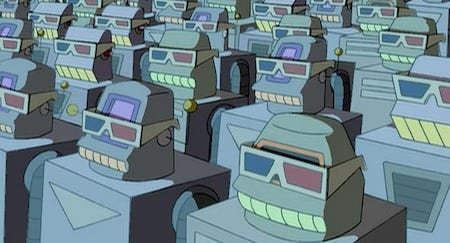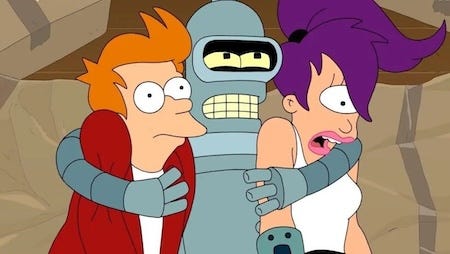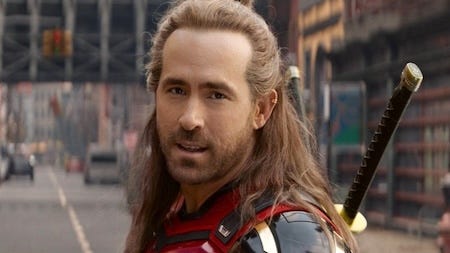All You Own Are Your Own Words
A recent bout of bad-faith discourse around leaving Twitter for Bluesky points to a bigger cultural disconnect around why and how we connect with others
Back in my graduate school days, I took several classes in computer-mediated communication, which is a fancy way of saying I got to spend two years talking with very smart people about how we send and receive messages in different mediums, and what might be special (or not) about communicating online*. This kind of slow, iterative conversation required no small amount of background reading, including but not limited to:
Walter J. Ong — key takeaway: oral communication builds community knowledge, while literacy is a more abstract and private means of understanding knowledge.
Marshall McLuhan — key takeaway: the faster a mode of information transmission, the more necessary it is to take a step back to really wrap your brain what's going on.
A mess of linguists — key takeaway: language is a social phenomenon as well as a means of transmitting information. Also did you know Noam Chomsky had some WILD theories about the brain and language acquisition.
Walter Benjamin — key takeaway: mechanization of communication means people perceive -- but do not necessarily engage with -- information by force of habit instead of focused intention.
A mess of sci-fi authors, many of which were modeling the idea that people's online/offline experiences would be sharply bifurcated, so strange and/or world-changing things would happen when these two "worlds" bled into one another.
I came away from all this study convinced that the medium in which we communicate does shape everything from how we engage with the substance of the message to how we engage with the intended recipients of our message. In other words -- we needed to be aware that a conversation is not a letter is not a broadcast is not an email.
However, two things I most vividly remember reading were reportorial, not theoretical.
The first was an account of The Whole Earth 'Lectronic Link (The WELL) and its disclaimer that "you own your own words." This sentence cuts two ways: it allowed WELL owners to legally disclaim any liability for any text or data posted or stored on the WELL, but "you own your own words" was also understood as a shared social norm, where your community standing was comprised of your contributions to the discourse.
The second was an old Utne Reader article reporting on the listservs that had sprung up to offer people the means to connect with like-minded folks in highly specific situations. In the article, someone who was parenting a child with a ferocious cancer diagnosis posted to the list in despair one night; one or two other night owls popped up with replies to let them know they were not alone. It was a community bound by shared circumstances, not shared zip code.
So that was the Internet that carried me into adulthood -- a network of assorted outposts and self-organizing communities in which people were comically aware of how different communicating online was, and spent a lot of time articulating that difference.
I have always understood on some level that my Gen Zalpha child has a different Internet, but the sensitive and smart Slate article, "Silent but Deadly," about the rise and decline of voice chat in massively multiplayer online role-playing games really hammered it home:
Mitchell Winkie, a screenwriter in Los Angeles and my brother, was also a degenerate World of Warcraft sicko in his youth, and he recalls a moment when—after a long night in one of the game’s most daunting battlefields—he told his party leader that he needed to go to bed. “I brush my teeth, shut down my computer, and my fucking Razr phone rings,” he told me. “It’s my party leader, who is begging me to log back on, in a very sweet, not-scary way, just desperate because they don’t have enough man power to kill the final boss.” Sure enough, Mitchell popped out of bed and put his talents to use.
“I don’t think anything dropped for me, but I was a minor hero,” he continued. “And, looking back, obviously everyone knew I was such a young kid from my squeaky voice, but they all treated me very kindly and big-brotherly in a way I’ll never forget.”
Still, the positive social interactions players have found in video games over the years are easily outweighed by the negative ones. What is the cultural stereotype of a Call of Duty match on Xbox Live? Slurs, obscenities, and heavy-duty profanity, whipsawing back and forth at impossibly loud volumes. (I am reminded of this clip, in which a bright-eyed kid asks the rest of his team, in a prepubescent voice, how much candy they got for Halloween. Someone instantly shouts back, “Shut the fuck up!”)
Emphasis mine.
This is how "you own your own words" cuts two ways. It allows companies to disclaim responsibility for content moderation and it places the burden on end users to protect themselves from bad actors in third spaces. A lot of people have protected themselves by simply refusing to engage or connect.
SO WHAT
This article's timing is fortuitous, coming on the heels of a spate of navel gaze-y and frankly blinkered pieces by op-ed columnists who are mad that users are fleeing the social network formerly known as Twitter for Bluesky, a decentralized option that has amazing block and mute features.
The op-eds all revolve around the tiresome premise that people exercising the right to not go to a website is somehow a threat to the marketplace of ideas. I refuse to link to any of these pieces because that only rewards bad-faith arguments and desperate bids for attention -- and both things are why people started disengaging with Twitter following Elon Musk's acquisition.
The editorialists are upset that Bluesky denies bad actors the ability to impose themselves upon a user's attention, whether in the replies, in the direct messages, or by re-skeeting and quote-skeeting a user so that others can see and harass them.
I see Bluesky's moderation approach as one of the first that actually nods to the old WELL ethos. The users own their own words. That means they own their reputation and, now equally crucially, they own the ability to control who will engage with those words. It is a neat new model of moderation that allows community participants to decide exactly how they will engage in wider discourse, and with whom.
WHO CARES?
The Electronic Frontier Foundation's John Perry Barlow wrote about online communities in 1997, arguing that they'd never match up to "real" ones precisely because being able to refuse engagement meant those communities were less real:
Missing from both the communes of the 60's and from Cyberspace are a couple of elements which I believe are very important, if not essential, to the formation and preservation of real community. They are an absence of alternatives and a sense of genuine adversity, generally shared. What about these?
[...]What are the shared adversities of Cyberspace? Lousy user interfaces? The flames of harsh invective? Dumb jokes? Surely these can all be survived without the sanctuary provided by fellow sufferers.
Reading this 27 years later, we can outline the adversities of cyberspace because these adversities came in from the "real world" or spilled out into them from online spaces -- children coerced into abuse on camera, genocides fomented over social networks, people swatted or driven to suicide by the "harsh invective" of persistent bullies, foreign actors targeting Americans during election years and social media platforms eagerly going along with it.
But on a much smaller scale -- trolls and bad actors moved to Bluesky once they saw that there was nobody left to bother on Twitter, and people have moved with alacrity to disrupt that trollish dynamic. If that's not shared adversity, what is?
The big social networks of the past fifteen years have systemically replaced moderation with algorithmic manipulation, and the net result is that places like Facebook, Instagram, and Twitter have trained their users to mistrust those platforms.
You can't build communities on opacity, powerlessness, and suspicion. As the big tech platforms make it increasingly apparent that they do not care how harmful user experiences are so long as the companies can continue tracking an upward trend in engagement metrics and the corresponding advertising dollars, people will assert the only power they have left: the power to refuse to engage.
When people own their own words, they have the power to decide when and where to share them. It would behoove us to notice when and why the sharing stops.
YOUR POP CULTURE RECOMMENDATION
I recently recorded a podcast with The Incomparable on Deadpool and Wolverine (available on Disney+) and it is loud and cartoonishly violent and ridiculously self-referential and deeply hilarious. I am not a hater of Marvel’s whole “Every villain is a British actor” thing and Matthew McFayden treats the assignment like an honor student would.
Do you want a really dumb movie with a boy-band dance sequence and Chris Evans spouting off a shocking amount of profanity in a hilariously chewy Boston accent? This is the movie for you.



